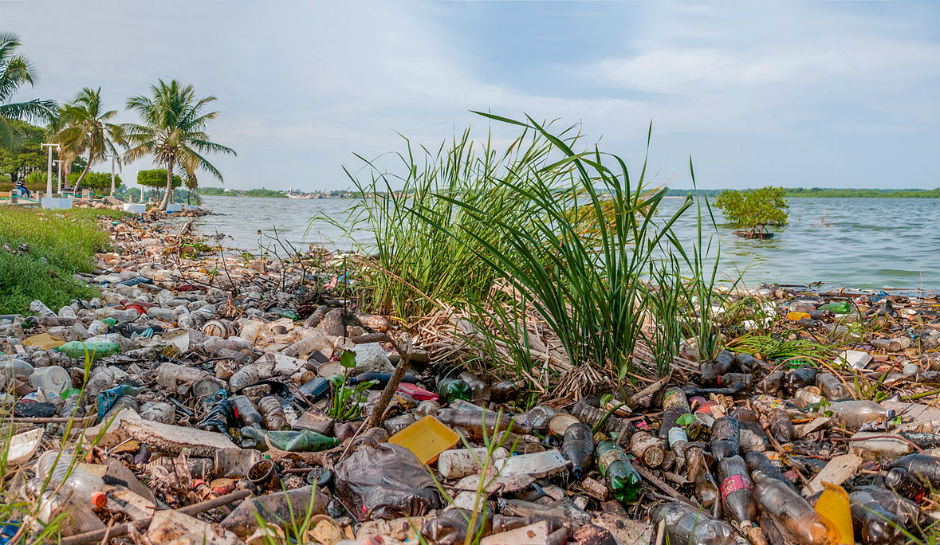The effects of water pollution on people vary from country to country. Most people in developed countries take for granted the abundance of fresh, clean water used for drinking and sanitation.
Unfortunately, there are people in developing countries who struggle and ultimately die from the lack of safe, clean and fresh water.

Effects of Water Pollution on People
Water pollution is a biological, chemical, or physical change in water quality that makes water inapt for needed use or has a harmful effect on living organisms. Water pollution can come from a number of sources, such as mining, agriculture, or industries.
Climate change can also cause water pollution, in that intense downpours of rain can flush microorganisms, plant nutrients, and harmful chemicals into waterways.
According to the World Health Organization (WHO) every year, close to 3.575 million people die prematurely due to infectious diseases spread by contaminated water or the lack of clean water for sufficient hygiene.
Most of those who die are children younger than age 5.
In developing countries, like parts of Africa, Middle East, and Asia, diarrhea caused by polluted water kills 1.9 million people—about 90% of them are children under 5 years old.
Water Pollution Examples
The good news is that, since 1970, developed countries like the United States have enacted laws that require industries to reduce or eliminate harmful chemicals from getting into surface waters.
In addition, in Great Britain, success in reducing water pollution took place in the 1950s, where private industry and British taxpayers helped to eliminate the sewage in the Thames River.
However, religious beliefs, cultural traditions, large populations, and poverty caused severe pollution in the Ganges River in India.
Hindu people, in India, believe the Ganges River is a holy river. Every day, large numbers of Hindus take a dip in the river, bathe, and drink the water for religious reasons.
Unfortunately, the Ganges River is highly polluted. Close to one-third of the country’s population live by the river basin—about 350 million people. Very little of the sewage produced by industries, the people in the area, and 29 other cities, is treated properly or sufficiently.
Moreover, the Hindu people believe cremating the dead frees the soul and disbursing the ashes in the holy Ganges River increases the chances of the deceased to enter into heaven. Most of the time, wood is burnt to cremate the bodies; however, sometimes wood is scarce, so many partially burnt or unburnt bodies are placed in the river where they decompose and add more disease-carrying bacteria and viruses in the water.
The following is a short video of people gathering in and around the Ganges River:
The Ganges River
What We Can Do
The previous circumstance is an example of how cultural and religious situations, population growth, and poverty affect environmental problems and solutions to these problems.
It’s encouraging to know that most developed countries have enacted regulations and laws that have reduced water pollution. On the other hand, there has not been much done in reducing water pollution in developing countries.
Developing countries will need help from their elected officials, as well as financial and technical help from developed countries.
The following are suggested solutions you can do to reduce the effects of water pollution on people:
- Minimize your use of pesticides
- Do not use water fresheners in toilets
- Do not flush unwanted medicines down the toilet
- Compost your food wastes
- Don’t drink bottled water unless you’ve tested your tap water and it shows to be contaminated
- Reuse and refill plastic bottles with tap water
- Don’t pour solvents, paints, pesticides, antifreeze or other products that contain toxic chemicals onto the ground or down the drain
- Use compost or manure instead of commercial fertilizers to fertilize your garden or plants
- Buy or grow organic foods
Featured image courtesy of The Photographer via Wikimedia Commons | Cropped and Resized | CC-BY-SA-3.0
Thank you for sharing informative news. The Vasthi provides reliable and accurate measurement of iron concentrations to improve drinking water quality.
Your article is really important for us to know the effects for water pollution. I learn many new things to read your post and will come again to read more new. Carry on………. :)
Reminds me of the time I worked as an assistant to the chemists that helped made certain the water was safe to drink. This was at the Suburban Philadelphia Water Company in Bryn Mawr PA. I can tell you because I was there the water in suburbs of PA is safe. One thing for sure that place was a regular chemical factory. It was teeming with chemicals. Not so certain Philadelphia water.
We appreciate hearing about your experience, mugwort.
It’s surprising what we might find in places most of us are not privy to.
Very timely, George. There is a real shortage of drinking water in poorer nations. One reason why Rotarians and other volunteers build and donate drip filters. A simple one, made from a plastic drum and using a sand-based filter, costs something like $20 or $25, but filters out around 99 percent of hazards. Pretty amazing how something that simple can do so much good for a family.
– Tom
Thank you for sharing your knowledge on this subject, Tom.
You’ve provided little known, valuable facts worth considering.
Thank you for this informative article. Water is surely going to become a much bigger problem in the future if action is not forthcoming. The realization of so much preventable death and disease is extremely distressing.
You’re welcome and thank you as well, Thomas!
I appreciate you taking time out of your day to read and comment on this article and subject.
I also wholeheartedly agree with you…